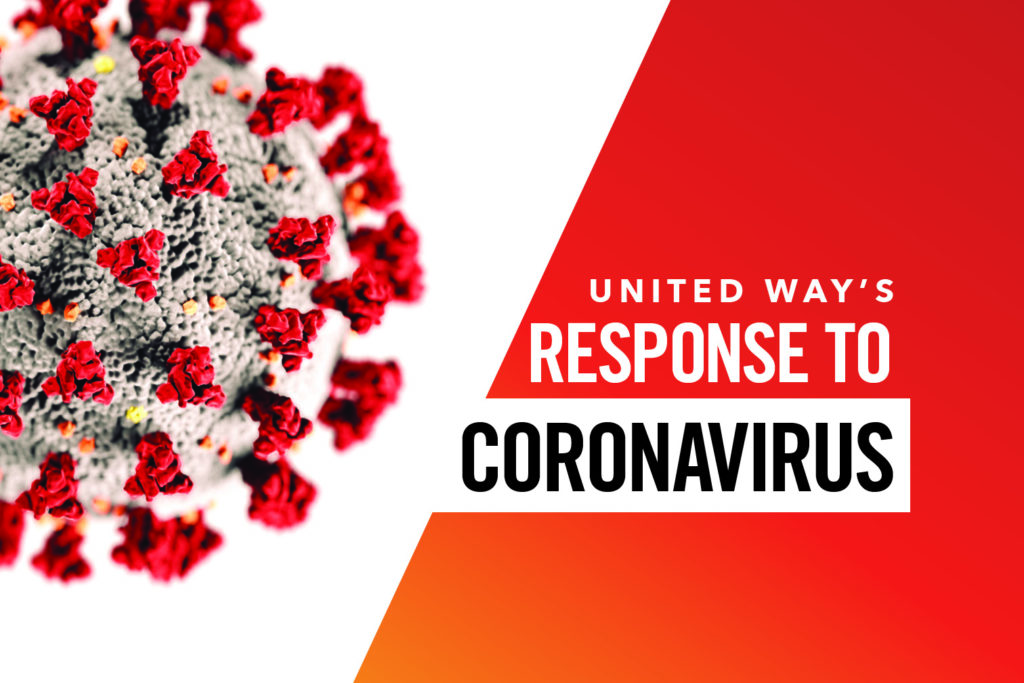

NAN PRICE: How is United Way of Central and Northeastern Connecticut meeting the community’s needs in these challenging times?
PAULA GILBERTO: We recently celebrated our 95th anniversary. Over that time span, United Way has experienced many challenges and times of uncertainty, but we keep coming back to our mission to bring together the right people, the right organizations, and the right resources all in support of local children and families.
Our mission is more crucial now than ever. It’s important that we unify around supporting those who are in need—and see within ourselves our opportunity to give. United Way is responding by focusing on three basic things: How can we ensure people get the help they need? How can we ensure that we have opportunities for people to give help? And, equally as important, how can we make available COVID-19-related information and connect people to resources.
Prior to the COVID-19 pandemic, we clearly knew what we were experiencing in Connecticut and throughout the country, with numerous households walking a financial tightrope. Here in Connecticut, four out of 10 households are financially unstable and lack the resources to meet their most basic needs in terms of food, housing, childcare, and healthcare. Now, as a result of COVID-19, many Connecticut residents have been furloughed and have lost their jobs. We’ve seen applications or inquiries around the Supplemental Nutrition Assistance Program (SNAP) increase by 125% —so people who were already financially challenged are now even more so.
Add to that other individuals who are vulnerable. Think about the children and families that lacked consistent food and stable housing, victims of domestic violence who are not safe at home, children with special needs, and the elderly. Again, this is a time when people who were vulnerable before are even now more vulnerable—added to that are the number of individuals who have had their hours reduced at work, been furloughed, or been laid off.
NAN: What can be done do about that?
PAULA: It’s one thing to focus on the need, but the companion piece is to focus on what can we do. We’re looking at how we can quickly raise dollars to provide funding to community-based organizations that are providing much-needed services.
We’ve created several opportunities for people to provide help. One critical way is through financial contributions. One way people can help by is by making a contribution to United Way Neighbors In Need, which equips our community-based organizations with funds to provide individuals and families with food; other forms of emergency assistance, such as help with rent and utilities; and childcare services, particularly for those children of healthcare workers and first responders.
American Savings Foundation; Bank of America, Community Foundation of Greater New Britain, Farmington Bank (Community Foundation), Navigate Affordable Housing Partners, Santander Bank, Stanley Black & Decker, Sun Life Financial Group, TD Bank (through the TD Bank Charitable Foundation), The Hartford Steam Boiler Inspection and Insurance Company, and UPS have contributed, along with numerous individuals who are stepping up.
NAN: Any specific community-based organizations you’re collaborating with?
For the first round of funds, we received 22 applications. We have several requests from around the region for emergency material assistance, which provides direct client assistance for rent and utilities, grocery cards, and funds for toiletries and food. We’ve received requests from shelters for the homeless and shelters for those experiencing domestic violence. We also have a few requests from nonprofit organizations that provide childcare and some that provide critical services to people with intellectual and developmental disabilities.
The requests for the first round of funds totaled $964,000. We haven’t raised that amount of money yet to meet all the needs. We’re going through a process of reviewing those applications
NAN: Tell us about the Connecticut United Ways COVID-19 Response Fund.
PAULA: The 15 United Ways in the state of Connecticut have banded together for a statewide response. The difference between this fund and United Way Neighbors in Need is that these contributions are going directly to individuals who have been identified by the town’s social service departments as needing immediate financial assistance. We, in turn, are partnering with EML Payments Limited, which provides prepaid electronic distribution of funds cards. Through that partnership, we can provide individuals with $200 to meet basic needs.
I’d like to recognize the Aetna Foundation, which was the first in with the incredible gift of $100,000. Since the launch, Travelers Companies Inc., The Connecticut Health Foundation, and the J Walton Bissell Foundation have each contributed $150,000. Avangrid Foundation, Citizens Bank, Connecticut State Employees Campaign, Eversource, Ion Bank, Liberty Bank, Newtown Savings Bank, Pitney Bowes, and Webster Bank have also generously contributed. So again, we’ve received generous support.
NAN: How can the community become involved?
PAULA: This is a time when those of us who can contribute financially want to be able to do that. Those who can contribute time want to be able to do that, as well.
Volunteer information is available on our website via the COVID-19 Response Fund link. From there, you can follow links to make a direct donation to the fund. You’ll also find various ways to Give Help through medical and non-medical volunteer opportunities. We provide links to information about donating things like food, blood, and personal protective equipment. And, there are links to virtual volunteer opportunities, like recording yourself reading a children’s book or doing a STEM-related activity for students to try at home or sending an e-card to a healthcare worker, a child, or a senior citizen.
Learn more about United Way of Central and Northeastern Connecticut
unitedwayinc.org | Facebook | Instagram | LinkedIn | Twitter | YouTube
